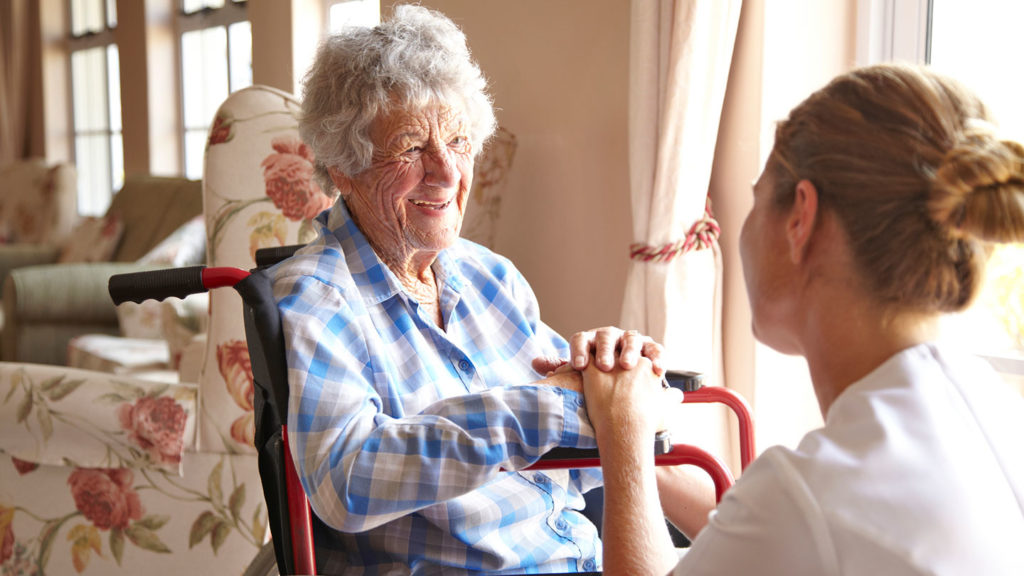
The global coronavirus pandemic has shifted the mindset of families and how they view senior living and care — and not in a good way, according to new research from a healthcare consulting firm. But senior living communities have an opportunity to win back trust.
Research from Toledo, OH-based Transcend Strategy Group reveals family caregivers’ opinions about how to best care for older adults changed due to COVID-19, with facility-based care suffering a blow in consumer confidence. The research assessed the effects of the global pandemic on the impressions of a variety of care settings from 1,000 family healthcare decision makers across the country, 23% of whom indicated they have a loved one who resides in an assisted living community.
Among family caregivers surveyed, 65% said COVID-19 has completely changed their opinions about the best way to care for older adults, 68% said they don’t agree that quality care can be provided in assisted living and other congregate care settings, and 78% said they are concerned their loved one will contract COVID-19 in a facility.
Looking to a time after the pandemic, two-thirds of family caregiver respondents said they plan to use in-home care rather than facility-based care.
When it comes to assisted living in particular, 51% of respondents said they will not use or are less likely to use assisted living for a loved one now compared with before the pandemic. And 9% of respondents indicated that they postponed helping a loved one move into assisted living due to the pandemic.
“Clearly, there has been a loss of confidence and trust in facilities’ care, sparked by COVID-19,” said Stan Massey, Transcend partner and lead consultant. “Facilities, I think, need to work to rebuild that trust.”
But Massey said there is a caveat: choice. Although families said they prefer that a loved one remain at home, many don’t have that option due to financial, logistical or other factors.
“One thing that came through loud and clear is that when people were trying to make a choice of care for a loved one, the likelihood of choosing any facility-based care went down substantially if they have the option,” he said. “How can assisted living facilities and others build trust to attract the population that is still going to need help caring for their loved one?”
Perception of quality linked with communication
Respondents’ opinions on facility-based care were colored by experience. Data showed a significant correlation between perceptions of quality care and communication. Survey participants were more than three times as likely to report being satisfied with the quality of care provided to their loved one if they were satisfied with the quality of communication they received about coronavirus cases and safety protocols.
And 70% of family caregivers were more likely to believe their loved one was receiving better care in a facility than they could at home if they were satisfied with access to information to help monitor their loved ones’ health. In addition, 52% said they believe their loved one is safer in a facility if the staff members demonstrate compassion when family members can’t visit.
“There is a clear path to rebuilding trust and confidence in facility-based care,” Massey said. “And experience with a facility-based care provider has considerable impact on perceptions of quality care and safety.”
As the pandemic continues, Massey said, there are strong implications for how facilities use telehealth and remote monitoring tools to allow families daily access and frequent updates on the condition of their loved ones.
“Overall, family caregivers have many new expectations related to safety, quality, services and communication, many of which will become part of the fabric of tomorrow’s normal,” said Stephanie Johnston, president and CEO of Transcend. “Moving forward, it will be important to provide clear communication that’s rooted in trust, demonstrates your credibility and conveys a sense of control for the family and their loved one.”




